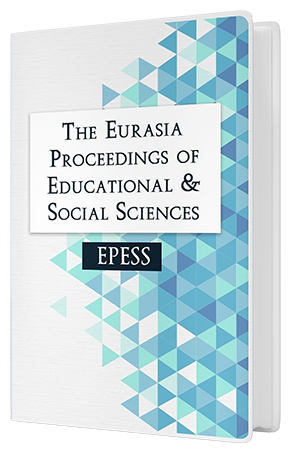A short history of the USD and a Reflection on the Current World Order
DOI:
https://doi.org/10.55549/epess.1412833Keywords:
Dollar, Monetar, Global economyAbstract
Economic integration has emerged as a significant concern due to its potential threats to local culture, social stability, and economic growth. Led by the United States, Western countries have adopted economic integration as a means to further their global political and economic interests. The dominance of the US dollar in the global economy empowers the US to manipulate world markets and exert control over other nations' economies. This paper delves into the evolution and historical significance of the US dollar, with a specific focus on its influence on the Chinese economy. It investigates the economic, political, and other implications of US dollar exchange rate fluctuations on China, particularly in relation to Chinese-US trade and import-export activities. This study introduces a novel perspective on the potential impacts of the US dollar exchange rate on China's economic relations with the United States. The paper concludes by proposing measures and countermeasures from China's standpoint to identify viable solutions.The literature review section provides a comprehensive overview of the historical evolution of the US dollar, drawing from the works of Ferguson, Marthur, Duncan, and other researchers. It traces the journey of the US dollar from its origins in colonial America, through the establishment of the gold standard, the impact of wars and crises, to the transition to the Bretton Woods system. The review also highlights the US dollar's central role as a dominant currency in international trade and the leverage it grants the United States in imposing trade sanctions and influencing other countries. In conclusion, the abstract underscores the urgency for reform in the international monetary system to mitigate the adverse effects of the US dollar on the global economy. It advocates for a more independent and equitable system that fosters fair economic relations among nations. Addressing the challenges posed by economic integration and the dominance of the US dollar is essential for safeguarding local cultures, social stability, and sustainable economic growth worldwide. By exploring the impacts on China's economy, this study contributes valuable insights to develop effective strategies for fostering a balanced and mutually beneficial global economic landscape.Downloads
Published
Issue
Section
License
Copyright (c) 2023 The Eurasia Proceedings of Educational and Social Sciences

This work is licensed under a Creative Commons Attribution-NonCommercial-ShareAlike 4.0 International License.
The articles may be used for research, teaching, and private study purposes. Any substantial or systematic reproduction, redistribution, reselling, loan, sub-licensing, systematic supply, or distribution in any form to anyone is expressly forbidden. Authors alone are responsible for the contents of their articles. The journal owns the copyright of the articles. The publisher shall not be liable for any loss, actions, claims, proceedings, demand, or costs or damages whatsoever or howsoever caused arising directly or indirectly in connection with or arising out of the use of the research material. All authors are requested to disclose any actual or potential conflict of interest including any financial, personal or other relationships with other people or organizations regarding the submitted work.




